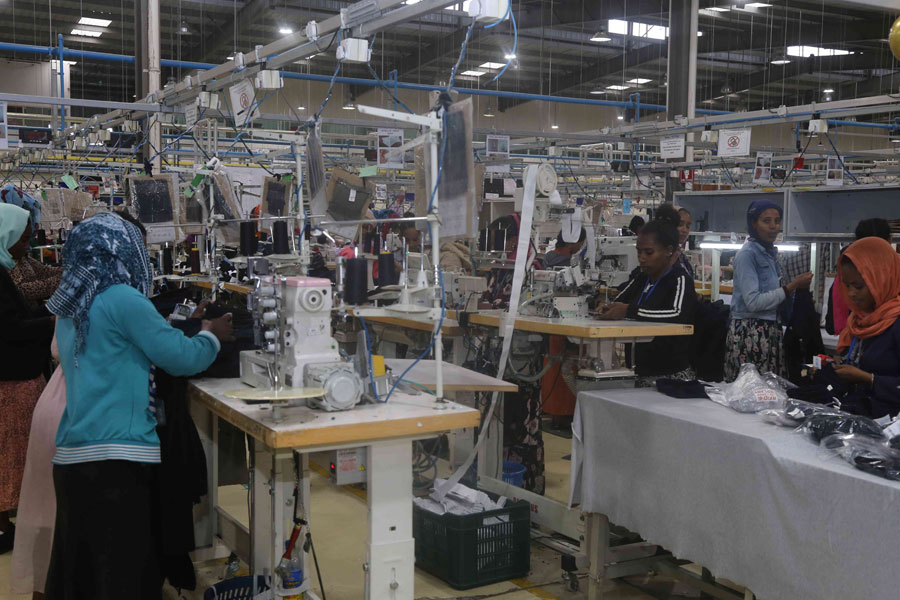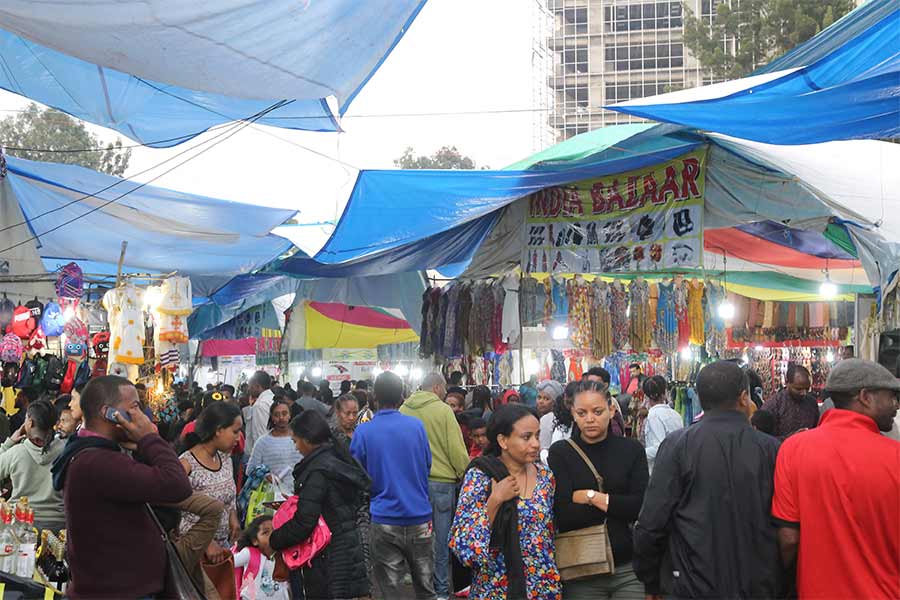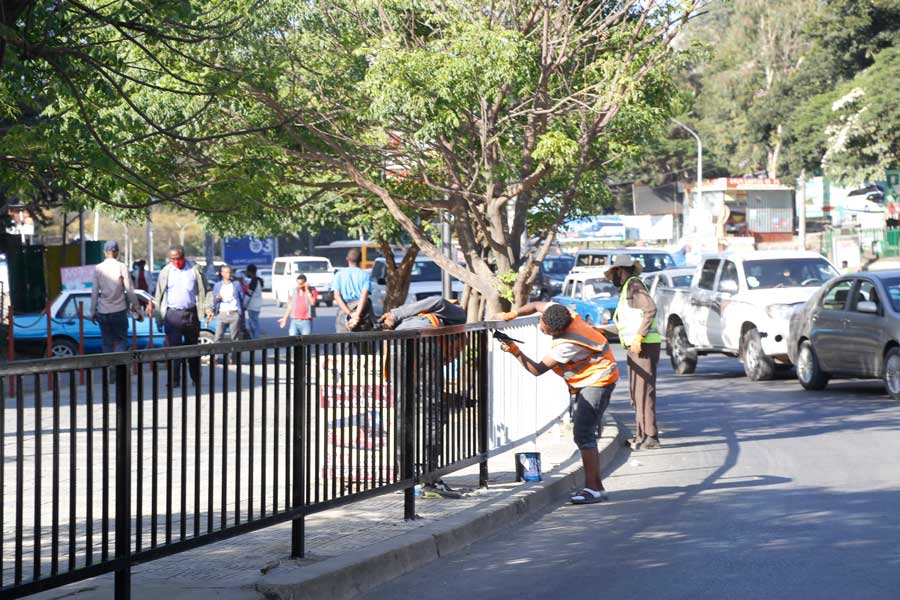
Fortune News | Aug 05,2023
The current fasting season of Gena, the Ethiopian Christmas, did not force all butcheries in the capital to close their doors. But it does not mean that all of them are open either since most of them remain closed until the holiday.
Some open doors to serve customers like Biruk Eshetu, a teacher by profession who is fond of beef and enjoys eating it raw at his regular butchery.
A resident in Gotera Condominium, Biruk comes from the southern part of the country where beef is considered a cultural food consumed every day.
“I see myself as one of the primary consumers of beef,” Biruk says.
Since last week Biruk observed that a lot of butcheries are shuttered or have increased their prices. He learned from business owners that the reason was the tax increase that was imposed on them.
The closure of the butcheries followed the enactment of a directive that was issued by the city's Revenues Authority recently.
Five years ago, the tax Authority found it difficult to collect tax from meat shops because of the lack of accurate data on the number of cattle slaughtered by the butcheries. Due to this, the sector was exposed to mischievous activities, according to the Authority.
Considering this, a group of individuals from the city's Abattoirs Enterprise, Revenues Authority and meat sellers association established a team. The team classified the tax collection system into four categories, making the weight of the cattle the basis for the tax estimation.
The meat of cattle weighing 214Kg and above was considered a very high standard product. Cattle at this level were taxed at 3,821.30 Br each.
The second category, high standard meat, pertained to cattle ranging between 173Kg and 214Kg, which were taxed at 3,232.80 Br a head.
The middle standard meat designation referred to livestock that weight between 110Kg and 173Kg, which were taxed at 1,627.35 Br each.
The Addis Abeba Abattoirs Enterprise normal slaughters 900 cattle per day.
The low standard product specified livestock between 84Kg and 110Kg, which were taxed at 1,053.15 Br a head.
However, in practice, the taxing system was instead applied using two schemes. The first scheme merged the first three higher-quality beef categories into one, which all cost 1,971 Br in taxes a head, and kept the fourth category as it is. Regular butcheries were under the first scheme, causing them to pay a higher tax for better cuts of beef.
Under the second scheme, cooperative meat shops, kebele recreational centres and institutional meat shops under employee associations only paid 1,052.15 Br for every category of beef they serve, which is why they typically offered cheaper prices.
Butcheries under both categories, however, are required to submit a monthly financial statement with the number of cattle they slaughter to the tax office. However, butcheries pay the annual tax based on this monthly data at the end of October. This is why the industry is suddenly up in arms.
Due to the unpredictable price of meat, the Authority was supposed to revise the tax every six months based on the data from the Addis Abeba Abattoirs Enterprise, according to the directive. However, that was not applied, and the businesses were paying tax at the fixed rate over the past couple of years.
The revision made last year has pushed up the tax that normal butcheries pay by more than 300pc in some cases, because they now pay taxes based on the market price rather than the old fixed price.
Cooperative meat shops, kebele recreational centres and institutional meat shops must now pay taxes for each head of cattle at 84 times the average retail price of a kilogram of beef in their district. Normal butcheries must now pay taxes calculated at 122 times the average retail price of a kilogram of beef in their district. The Revenues Authority will now revise the market price every six months if it changes.
The latest revision, which was made last year but enacted this year, angered many butcheries and triggered them to close their doors or raise prices.
Tagay Qurt Bet [raw meat shop], which is located in Kirkos District in Gotera, is one of the butcheries that closed its doors after the revision.
Tewodros Bogale founded the shop that has been in business for the past two years. It has been selling an average of four to five cattle a month with three employees.
"Since December 9, 2019, we haven't been selling meat, and the shop is empty," said Biruk Birega, a chief butcher at the meat shop. "We're unhappy about the new tax collection commands."
After the announcement of the new change, the number of cattle that go to the Addis Abeba Abattoirs Enterprise also significantly dropped.
Last week the Enterprise performed below its capacity, according to Atkelti G. Michael, public relations head at the Enterprise. Before late October, the Enterprise had been slaughtering a maximum of 900 cattle a day. However, the highest number of livestock the Enterprise slaughtered last week in one day was 250.
“It was due to lack of stock provided," Atkelti said.
Even those butcheries that keep their doors open and sell beef have already increased their prices by 40 to 100 Br a kilogram.
Daniel Tamiru, who is in his mid-30s and resides in Gofa Mazoria, also witnessed the price increase of meat over the past year.
Two weeks ago he bought a kilo of meat for 360 Br only to find that two days later the price had increased by 11pc. A kilogram of beef is sold at 400 Br a kilogram in a country that has a population of 60.4 million cattle, one of the largest figures globally.
The 50-year-old Addis Abeba Meat Sellers’ Association, which has 457 members, argues that the members were not informed about the new system in advance.
Members learned about the new directive when they went to pay their annual tax to the Revenues Authority, according to Mitiku Meshagu, deputy president of the Association.
"It was unexpected for most of the butcheries to hear the change,” Mitiku explains.
Protesting the changes, the Association has filed grievances to six government institutions including the Prime Minister’s Office and the city’s Revenues Authority appealing for the removal of the new taxing system.
Nibret Brihun, a tax assessment team leader at the city's Revenues Authority, argues that the time demanded the revision and the recent directive was prepared five years ago.
"Since 2015, the price in the market has changed due to inflation," he said. "Adjustments are made based on current situations."
Nibret also says that before the directive was amended, the Authority conducted a market assessment.
However, after the complaints from the Association, the Authority formed a three-member appeal committee. The team is comprised of members from the tax information collection team, tax assessment directorate and a new research department of the Authority.
“As soon as the committee finalises examining the appeal,” Nibret points out, "we'll present the findings to the director-general."
Yohannes Woldegaberial, a tax law expert who was a prosecutor at the former Ethiopian Revenues & Customs Authority, believes that such types of problems result because of the incapability of the tax collectors who used an old system.
“The sector has no structure, and the transactions in the market are unsystematic," Yohannes said. "As a result, the directive is arbitrary, and it lacks fairness."
Yohannes recommends the Authority conduct a comprehensive assessment before amending such kinds of directives and engage stakeholders in the process.
Mitiku claims that the government is putting pressures on the butcheries while failing to regulate the uncontrollable market.
“The government has no control over the illegal meat trade and slaughterhouses,” said Mitiku.
PUBLISHED ON
Dec 21,2019 [ VOL
20 , NO
1025]

Fortune News | Aug 05,2023

Fortune News | Aug 17,2025

Radar | Dec 19,2018

Radar | Jun 29,2019

Featured | Sep 08,2019

Radar | Nov 29,2020

Fortune News | Jan 09,2021

Radar | Sep 19,2020

Fortune News | Jun 29,2019

Fortune News | Jul 13,2020

Dec 22 , 2024 . By TIZITA SHEWAFERAW
Charged with transforming colossal state-owned enterprises into modern and competitiv...

Aug 18 , 2024 . By AKSAH ITALO
Although predictable Yonas Zerihun's job in the ride-hailing service is not immune to...

Jul 28 , 2024 . By TIZITA SHEWAFERAW
Unhabitual, perhaps too many, Samuel Gebreyohannes, 38, used to occasionally enjoy a couple of beers at breakfast. However, he recently swit...

Jul 13 , 2024 . By AKSAH ITALO
Investors who rely on tractors, trucks, and field vehicles for commuting, transporting commodities, and f...

Oct 4 , 2025
Eyob Tekalegn (PhD) had been in the Governor's chair for only weeks when, on Septembe...

Sep 27 , 2025
Four years into an experiment with “shock therapy” in education, the national moo...

Sep 20 , 2025
Getachew Reda's return to the national stage was always going to stir attention. Once...

Sep 13 , 2025
At its launch in Nairobi two years ago, the Africa Climate Summit was billed as the f...